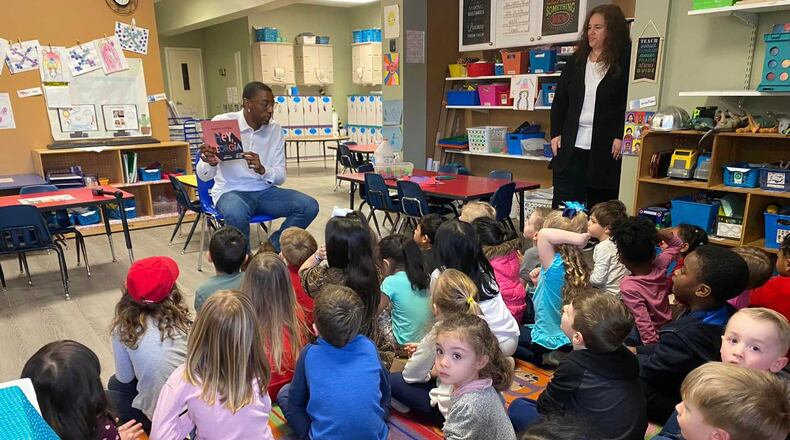Valdosta native Malcolm Mitchell played football from 2011 to 2015 for the University of Georgia, where he earned a communications degree. He played for the New England Patriots, earning a Super Bowl ring in 2017.
In his final year with UGA, Mitchell earned the David Jacobs Award, given annually to the player who best portrayed courage, spirit, character and determination. Mitchell is the author of children’s books including “The Magician’s Hat.” He created a youth literacy initiative called Read with Malcolm and established the Share the Magic Foundation to promote literacy.
In this piece, Mitchell urges other Georgians to support early literacy and read to children, especially during this year’s Georgia Pre-K Week Oct. 2-6.
By Malcolm Mitchell
Picture this: Me, Malcolm Mitchell, the Super Bowl champion, sitting in a classroom with my heart pounding like a drum as my teacher announces the day’s reading activity — round-robin reading.
My stomach churns with unease. I shift nervously in my chair, my eyes darting around the room, searching for an escape route that does not exist. As our teacher begins to assign passages to students, my palms grow sweaty and my throat goes dry.
My greatest fear was not poverty, the color of my skin or fleeing tacklers after a Tom Brady reception. My greatest fear was reading aloud.
Credit: Contributed
Credit: Contributed
The fear of reading is an unspoken, but very real phenomenon that does not discriminate. It extends beyond the simple apprehension of reading challenging texts; it is a dread that can hinder personal and professional growth, limit access to information and impact self-esteem. This process starts by the time a child enters pre-K.
Statistics show children with the lowest reading scores account for 65% of all children who do not graduate from high school. That could have been me. Due to my athletic ability and several people believing in me, I was able to attend the University of Georgia.
My literacy challenges became apparent on the UGA campus. To maximize my potential, I needed to improve my ability to access information. I decided to dedicate myself to reading as much as I had to football.
As part of the Georgia football’s community outreach initiatives, I visited schools — primarily elementary schools — to read children’s books to students. There I saw firsthand what an impact stories and the ability to read them had on young learners.
That is what Georgia Pre-K Week is all about. Every year, elected officials, public servants and former professional athletes get together to read to students in Georgia pre-K classrooms. In its 30-year history, Georgia pre-K has served more than 2 million 4-year-olds.
Third-party longitudinal studies show Georgia’s pre-K improves school readiness for the 60% of 4-year-old students who attend the program statewide. Participating students are less likely to experience the same feelings of stress and anxiety that I felt when asked to read aloud as a child.
For me, reading unveiled new horizons and helped break through barriers that others predicted would hold me back. But reading is just a ticket in the door. High-quality early learning experiences have been shown to help lower school retention rates, reduce dependency on public welfare systems and lower involvement in the criminal justice system, everything that plagued my community.
This year, I want to encourage you to join me, Voices for Georgia’s Children and the Georgia Department of Early Care and Learning for Georgia Pre-K Week Oct. 2 through 6 and read to a child at school or at home.
Trust me, it is more rewarding than winning a Super Bowl.
About the Author
The Latest
Featured




